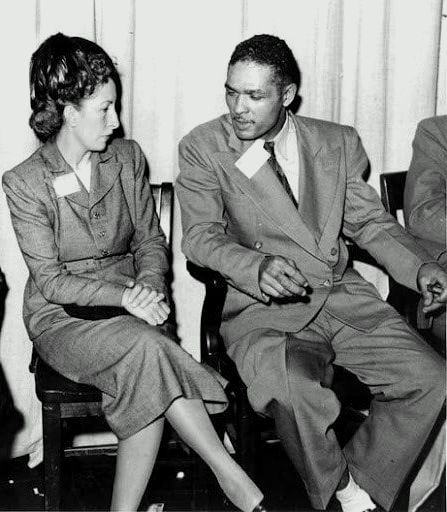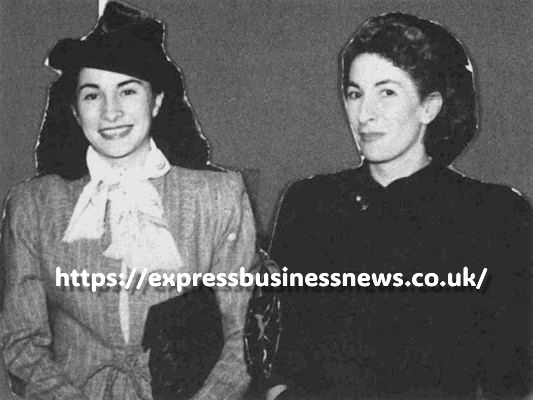Introduction To Luisa Moreno
Luisa Moreno, a pivotal decade in hard work and civil rights activism played an instrumental role in advocating for the rights of Latino humans within the United States to a small degree in the mid-twentieth century. Her tireless efforts in organizing unions, stopping for social justice, and championing the rights of marginalized companies have left an indelible mark on American statistics. This article delves into the life and legacy of Luisa Moreno, highlighting her large contributions to tough artwork moves and civil rights.
Early Life and Education
Early Influences
Born Blanca Rosa López Rodríguez in Guatemala City on August 30, 1907, Luisa Moreno changed into uncovered political activism from a younger age. Her mother and father, who had been part of the intellectual elite, instilled in her the importance of training and social duty. This early exposure to innovative ideas laid the foundation for her destiny activism.
Education and Early Activism
Luisa Moreno attended the Universidad de San Carlos de Guatemala, where she was involved in approximately scholarly protests and became politically lively. Her participation in these movements ignited her ardor for social justice and equality, and sooner or later immigrating to she immigrated to the United States in the past because of the 1920s, searching for broader possibilities and escaping political repression in Guatemala.
The Rise of a Labor Leader
Early Years in the United States
Upon arriving in the United States, Luisa Moreno first settled in New York City, where she worked as a tailor. Witnessing the tough operating conditions and exploitation of immigrant employees, Moreno has become deeply worried about hard work organizing. Her fluency in both Spanish and English allowed her to correctly communicate and mobilize workers from diverse backgrounds.
Joining the American Federation of Labor
Luisa Moreno joined the American Federation of Labor (AFL) and quickly rose through the ranks because of her brilliant organizational talents and willpower. She centered on organizing employees in industries with high concentrations of Latino workers, which include the garment and canning industries. Her management changed into instrumental in improving wages, operating situations, and activity protection for heaps of people.
Major Achievements and Contributions

Founding of El Congreso
In 1939, Luisa Moreno co-based honestly El Congreso de Pueblos de Habla Española (The Spanish-Speaking People’s Congress), a company dedicated to protecting the civil rights of Spanish-speaking groups inside the United States. El Congreso addressed problems in the aspect of racial discrimination, police brutality, and academic inequalities. Moreno’s control in El Congreso showcased her functionality to unite numerous Latino businesses below a common cause.
The Sleepy Lagoon Defense Committee
Luisa Moreno finished an important feature within the Sleepy Lagoon Defense Committee, which has become common to shield Mexican American youngsters wrongfully accused of homicide in Los Angeles in 1942. Her efforts helped draw u. S . A big hobby into the case, highlighting the systemic racism confronting Mexican Americans and contributing to the eventual acquittal of the defendants. This case became a pivotal moment in the battle for civil rights for Mexican Americans.
Advocacy for Farm Workers
Moreno’s advocacy extended to farmworkers, who have been among the maximum exploited laborers in the United States. She labored alongside Cesar Chavez and other outstanding hard-working leaders to improve conditions for farmworkers in California and at some point in the Southwest. Her efforts laid the groundwork for destiny labor moves, including the formation of the United Farm Workers (UFW).
Challenges and Adversities
Government Surveillance and Deportation
Luisa Moreno’s activism no longer comes with large challenges. During the Red Scare of the 1950s, her association with leftist companies and her outspoken advocacy for employees’ rights made her a goal of government surveillance. In 1950, going through mounting pressure and the possibility of deportation because of his political activities, Moreno chose to leave the USA and go back to Guatemala.
Legacy and Recognition
Despite the challenges she confronted, Luisa Moreno’s legacy endures. Her contributions to exertions and civil rights have been increasingly diagnosed in recent years. Numerous organizations and institutions have venerated her work, and her tale keeps inspiring new generations of activists.
Luisa Moreno’s Impact on Labor Movements
Strengthening Labor Unions
Luisa Moreno’s work extensively reinforced hard-working unions, mainly those representing Latino and immigrant people. Her capability to arrange and unite employees across different industries and backgrounds helped build a greater inclusive and effective labor movement. Her strategies and procedures for labor organizing remain influential nowadays.
Empowering Women Workers
Moreno was also a pioneer in advocating for the rights of ladies employees. She emphasized the significance of girls’ participation in exertion unions and fought for gender equality in the labor movement. Her efforts helped pave the way for greater representation and empowerment of ladies in exertion businesses.
Advocacy for Immigrant Rights
In addition to her exertions, Luisa Moreno changed into a staunch suggestion for immigrant rights. She highlighted the particular challenges faced by immigrant people and asked for comprehensive reforms to shield their rights and enhance their living situations. Her advocacy contributed to broader information about the intersection between labor rights and immigrant rights.
Continuing the Legacy of Luisa Moreno
Modern Labor Movements
The legacy of Luisa Moreno keeps steering modern hard work actions. Her emphasis on cohesion, inclusivity, and justice remains a guiding precept for exertion organizers these days. Organizations, together with the United Farm Workers and other unions, continue to draw concepts from Moreno’s paintings as they fight for workers’ rights in numerous industries.
Recognition and Education
Efforts to apprehend and train the public approximately Luisa Moreno’s contributions have gained momentum in recent years. Schools, universities, and community corporations are incorporating her tale into their curricula and applications, making sure that her legacy is preserved and celebrated. Public commemorations, together with works of art and ancient markers, also serve to honor her impact on American society.
Celebrating Luisa Moreno: Honoring Her Legacy

The enduring effect of Luisa Moreno extends past her lifetime, inspiring activists, students, and community leaders to uphold her values and principles. As the consciousness of her contributions grows, efforts to honor and celebrate her legacy are gaining momentum.
Cultural and Academic Recognition
Universities and cultural establishments have known to know Luisa Moreno’s effects in numerous ways. Academic meetings, symposiums, and studies tasks pay attention to her work and its implications for exertions and civil rights history. Scholars are exploring her strategies, writings, and speeches, highlighting her as a key parent inside the broader narrative of American social society.
Educational Initiatives
Incorporating Luisa Moreno’s tale into academic curricula is vital for maintaining her legacy and teaching future generations approximately the struggles and triumphs of hard work and civil rights movements. Schools and universities are, along with her biography in records and social studies applications, making sure that scholars study her pivotal position in shaping hard work rights and advocating for marginalized communities.
Public Commemorations and Memorials
Public artwork and memorials are effective tools for commemorating historical figures like Luisa Moreno. Murals, statues, and ancient markers in cities wherein she had a significant impact serve as visible reminders of her contributions. These public commemorations, now not the handiest honor her memory, but additionally teach the wider public approximately her role in advocating for employees’ rights and social justice.
Community Engagement and Activism
Community companies and labor unions continue to draw notions from Luisa Moreno’s activism. Events inclusive of hard work rallies, community boards, and workshops often pay tribute to her legacy, using her story as a rallying factor for modern struggles. Her methods of grassroots organizing and coalition-constructing stay relevant and are often referred to as effective techniques in current activism.
Luisa Moreno’s Influence on Contemporary Issues
Intersectionality in Activism
Luisa Moreno’s work exemplifies the importance of intersectionality in activism. She understood that the troubles of exertion rights, civil rights, and immigrant rights had been deeply interconnected. Her approach to organizing, which blanketed addressing the precise challenges faced using ladies, immigrants, and those of color, continues to resonate with cutting-edge activists who endorse a holistic and inclusive method of social justice.
Labor Rights in the 21st Century

The concepts that guided Luisa Moreno’s activism are nevertheless relevant in these days’ hard work rights moves. The fight for fair wages, secure operating situations, and the right to unionize stays ongoing. Organizations just like the Fight for $15, which advocates for a higher minimum wage, echo Moreno’s commitment to economic justice. Her legacy serves as a reminder that the warfare for employees’ rights is a continuous effort requiring determination and solidarity.
Immigrant Rights Advocacy
In the cutting-edge political weather, wherein immigration remains a contentious issue, Luisa Moreno’s advocacy for immigrant rights is mainly poignant. Her paintings highlight the exploitation and discrimination confronted by highlights of immigrant workers, issues that persist these days. Advocacy companies hope to attract her legacy to push for comprehensive immigration reform and to defend the rights of immigrant groups.
Gender Equality and Women’s Rights
Moreno’s advocacy for girls’ rights in the exertion movement set a precedent for gender equality in the place of business. Today, the combat for the same pay, parents go away, and protection in opposition to workplace harassment on. Moreno’s efforts paved the way for extra attention and movement to these problems, and her legacy conjures up ongoing campaigns for gender equality in all sectors of society.
Conclusion
Luisa Moreno’s life and legacy are a testament to the power of activism and the enduring impact of combating justice and equality. Her contributions to the hard hardworking movement, civil rights, and immigrant advocacy have left an indelible mark on American records. As we replicate her fantastic achievements, we’re reminded of the importance of continuing warfare for workers’ rights and social justice. Luisa Moreno’s legacy serves as a long-lasting notion for all those who are looking to create a more equitable and simple society.
Luisa Moreno’s life turned into a testament to the strength of resilience, team spirit, and unwavering commitment to justice. Her contributions to exertion rights, civil rights, and immigrant advocacy have left an indelible mark on American history. As we keep confronting the challenges of inequality and injustice, Moreno’s legacy affords a guiding light and a supply of inspiration.
Her potential to unite various groups, her strategic technique for organizing, and her relentless pursuit of social justice are training that continues to resonate these days. By honoring and keeping her legacy, we ensure that the values she championed bear and inspire destiny generations to carry forward the combat for a fair and just society.
Luisa Moreno’s tale is greater than a historical account; it is a name for action. It reminds us that development is viable through collective attempts and that the combat for justice and equality is as relevant today as it was in her time. As we pass ahead, allow us to take into account the courage and resolution of Luisa Moreno and strive to emulate her dedication to a better, more equitable world.
Luisa Moreno’s life and legacy are a testament to the power of activism and the enduring impact of combating justice and equality. Her contributions to the hard hardworking movement, civil rights, and immigrant advocacy have left an indelible mark on American records. As we replicate her fantastic achievements, we’re reminded of the importance of continuing warfare for workers’ rights and social justice. Luisa Moreno’s legacy serves as a long-lasting notion for all those who are looking to create a more equitable and simple society.
Read More: American Airlines Flight 457Q: A Comprehensive Investigation





